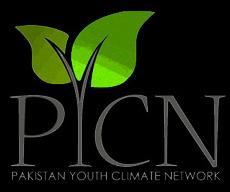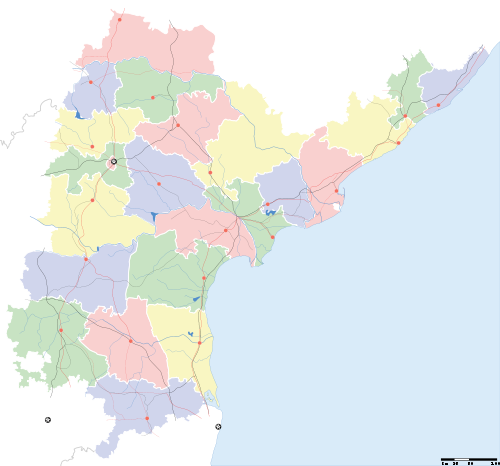/regions/political
Political
Appeal to save Ramsar site - Kol wetland, Kerala
Posted on 17 Aug, 2010 03:28 PMAmayam island in Kololambu, Edappal panchayath, Malappuram ditstrict, Kerala state which have rich in biodiversity and 40 acres of kol wet land is around the island is also rich in its rare biodiversity. This kol wet land is a part of vembanad backwaters (13,632 hectors) and declared as RAMSAR SITE (No. 1214) in 2002.
Pakistan flood relief appeal
Posted on 17 Aug, 2010 12:11 PMContent Courtesy: Pakistan Youth Climate Network

Wastewater Treatment Expo 2010, Conventions & Fairs, Hyderabad
Posted on 17 Aug, 2010 11:33 AM
Organizer: Conventions & Fairs (India) Private Limited
Venue: Hitex Exhibition Centre, Hyderabad (India)
Description:
The WASTEWATER TREATMENT EXPO 2010 (WTE'10) is scheduled to be held from 9th to 12th December at Hitex Exhibition Centre, Hyderabad (India). The event will be held in conjunction with WASTE MANAGEMENT EXPO 2010 (WME'10) supported by the National Solid Waste Management Association of India (NSWAI) and The Chartered Institution of Water and Environment Management (CIWEM).
Groundwater regulation under consideration for Andhra Pradesh
Posted on 16 Aug, 2010 05:01 PMThe legislation is likely to be in the form of an upgrade to the AP Water Land and Trees Act (WALTA).

Click here for the current Act
Attached are two working documents that are being used to frame the discussion for the new regulations.
PLEASE NOTE: These in no way represent final or official positions of the AP Government or other organisations and are not to be taken as such.
Water-use accounts in basins: Model concepts and description – A working paper by the Challenge Program on Water and Food
Posted on 16 Aug, 2010 12:18 PMThis paper deals with basin water use accounting and is a contribution to the synthesis work of the CGIAR Challenge Program on Water and Food's (CPWF) Basin Focal Projects. It provides a means to assess the interactions between water, food, poverty, and the environment and helps develop sound information about water availability in a basin, where it goes and how it is used.
Leh cloud-burst: A first-hand account
Posted on 16 Aug, 2010 11:44 AMMidnight, August 6, 2010: "Link, wake up! Water is coming in from the roof!" My mother and I were in Leh, Ladakh, staying at "Eco-Homestay," the house of Mr. Sonam Gyatso and family, in Lower Sankar. The house was made in a hybrid of traditional and modern construction techniques: the main hall in the house was concrete, while rooms surrounding it were made of sun-dried mud bricks, and roofed with Poplar beams, a mesh of willow branches, and a thick pad of fine clay-like mud. The house incorporated passive solar building techniques, such as a direct-gain room, and a Trombe wall, and had solar-powered lighting. It had been raining since evening, and by midnight the clay roof was saturated and began to leak.
We were in Leh for the express purpose of meeting with Helena Norberg-Hodge, the founder of the International Society for Ecology and Culture, co-founder of the International Forum on Globalization, founder of the Ladakh Ecological Development Group, and founder of the Women's Alliance, Ladakh. We had learned of her online, seeing an article of hers in CounterCurrents.org, and watching her video "Ancient Futures." She is the only person who has critically witnessed the "development" of Ladakh, from complete self-sufficiency in an exceedingly fragile eco-system, to the disaster under which it writhes today. She has seen how "development" pulls people into a money economy, increases the distance between production and consumption, brings reliance on fossil fuels (especially apparent in Leh where fuel and commodities are trucked in over a hazardous two-day journey from lower altitudes), results in urbanization and rural-urban migration, and brings psychological impoverishment to the people it is inflicted upon. For 35 years, she has been working to bring safe, stable, and ecologically sound development to the region through her organizations. Her work today, no longer limited to Ladakh, is focussed on spreading economic literacy among people throughout the planet, educating about the deeper impacts of globalization and today's consumer mono-culture. Garnered from her years of observation and research, she has an important message for humanity today, which is what prompted us to go and meet her.
Emerging groundwater crisis in urban areas – A case study of Bangalore city
Posted on 16 Aug, 2010 07:14 AMThe paper by the Institute for Social and Economic Change documents the case of Ward No. 39 situated at the outskirts of the Bangalore city to understand the emerging groundwater crisis due to overdraft in urban areas. Bangalore has no perennial river, which resulted in the growth of many lakes, acting as a source of groundwater recharge earlier.
Dams and development: A new framework for decision-making - A World Commission on Dams report
Posted on 15 Aug, 2010 01:51 PMThis report by the World Commission on Dams begins by arguing that the debate about dams is a much broader issue and is important for everyone since it is a debate about the very meaning, purpose and pathways for achieving development. It is complex because the issues are not confined to the design, construction and operation of dams themselves, but include a range of social, environmental and political choices that define development.
Dams fundamentally alter rivers and the use of a natural resource, frequently entailing a reallocation of benefits from local riparian users to new groups of beneficiaries at a regional or national level. At the heart of the dams debate are fundamental issues of equity, governance, justice and power. The report argues that the main challenge lies in reconciling the competing needs between different groups of actors and provides a framework to deal with these fundamental issues in the dam debate.
Increasing groundwater dependency and declining urban water quality – A comparative analysis of four South Indian cities
Posted on 15 Aug, 2010 07:18 AMThis paper by the Institute of Social and Economic Change (ISEC) examines the extent of groundwater dependency and quality status in four South Indian cities viz., Hubli, Dharwad, Belgaum and Kolar cities. Widespread water shortage problems have resulted in increased dependency on groundwater with tapping the resources to unsustainable levels. In Karnataka, out of 208 urban local bodies that come under Karnataka Urban Water Supply and Drainage Board, 41 depend on groundwater.
Modeling of a coastal aquifer in Goa using FEFLOW – A research report by National Institute of Hydrology
Posted on 14 Aug, 2010 11:49 AMThe study by National Institute of Hydrology attempts to model seawater intrusion using FEFLOW, an interactive finite element simulation system in the coastal area of Bardez taluka in North Goa and evaluate the impact of increasing groundwater development on the phenomenon. Coastal tracts of Goa are rapidly being transformed into settlement areas and the poor water supply facilities have encouraged people to develop their own sources of water by digging or boring wells.